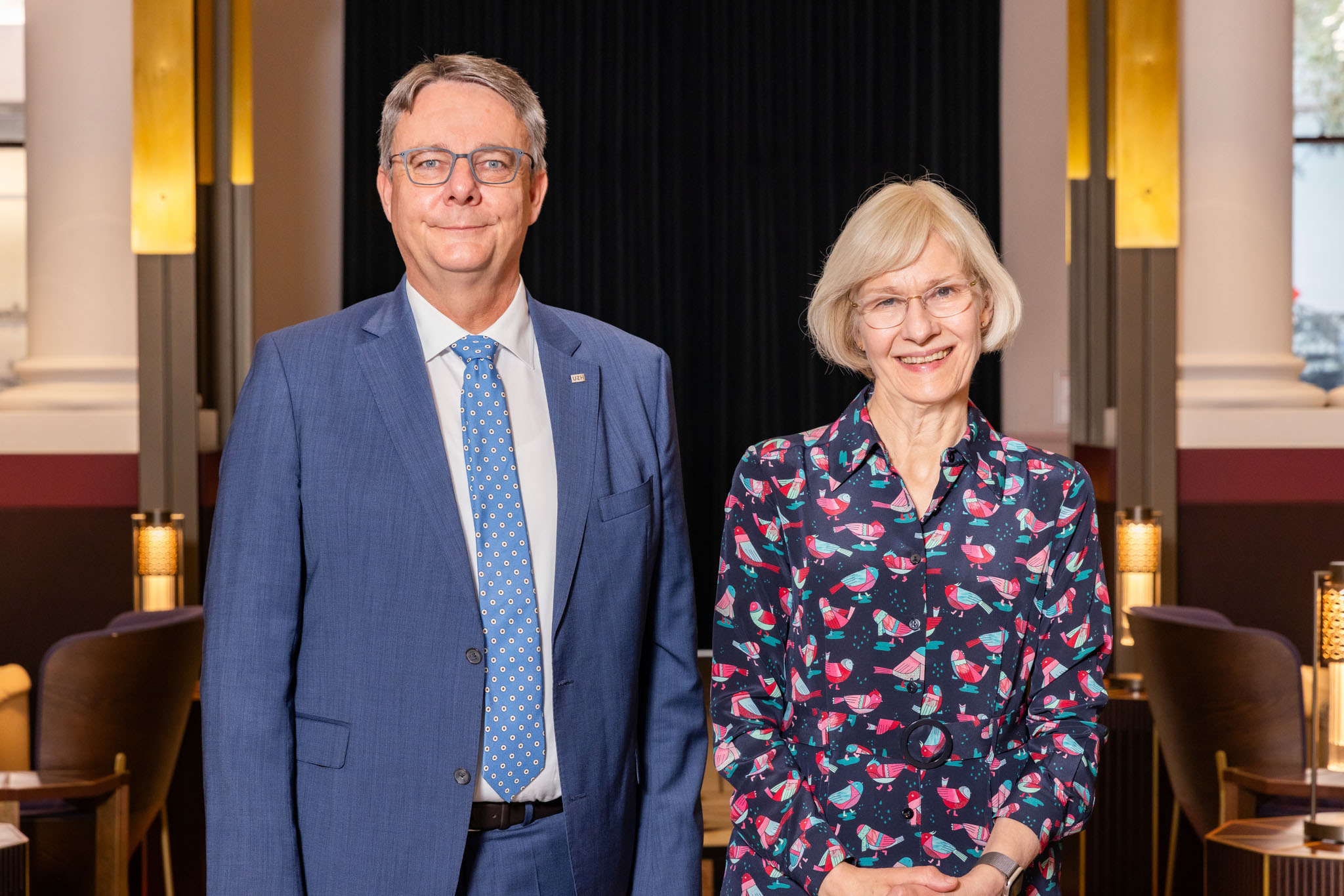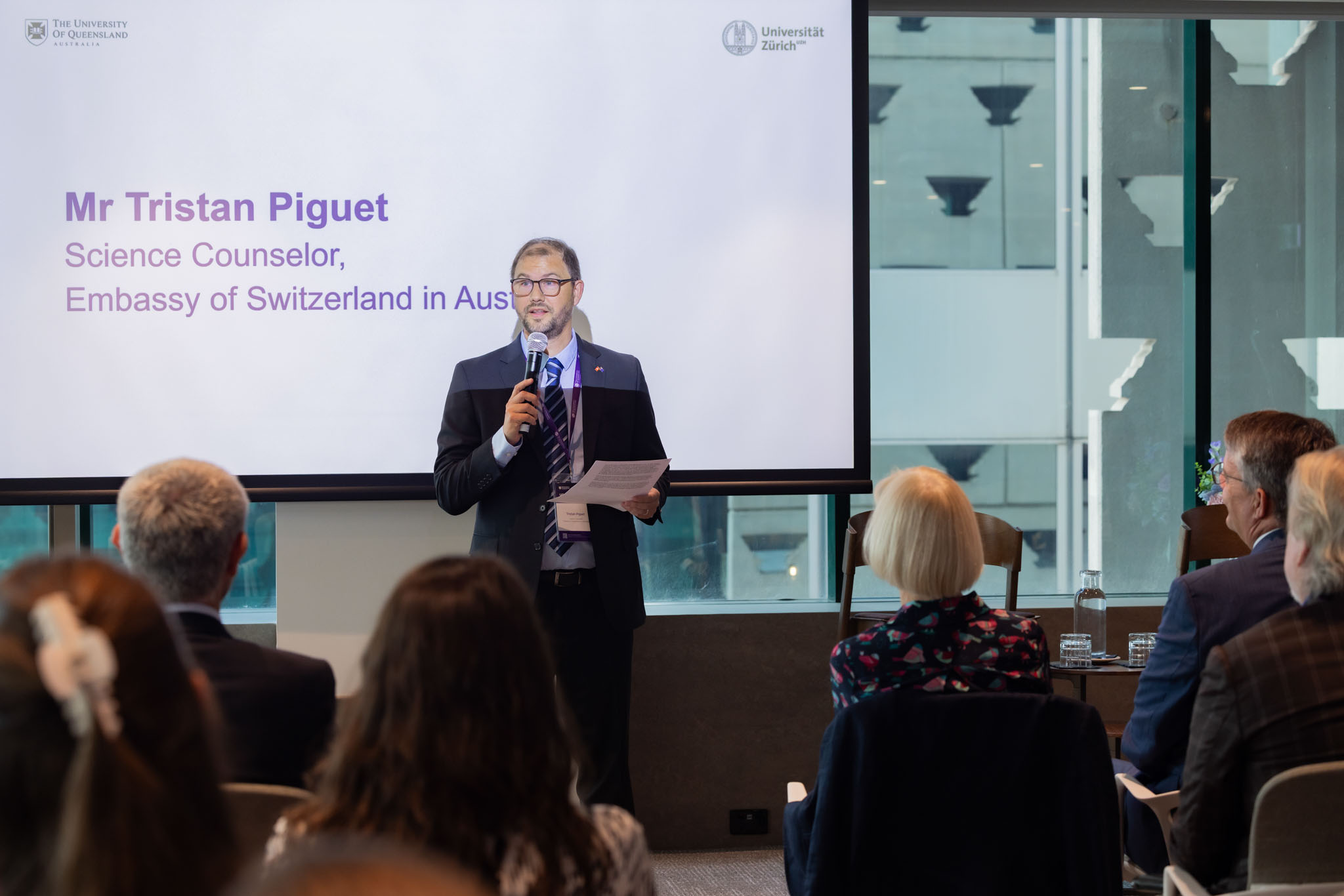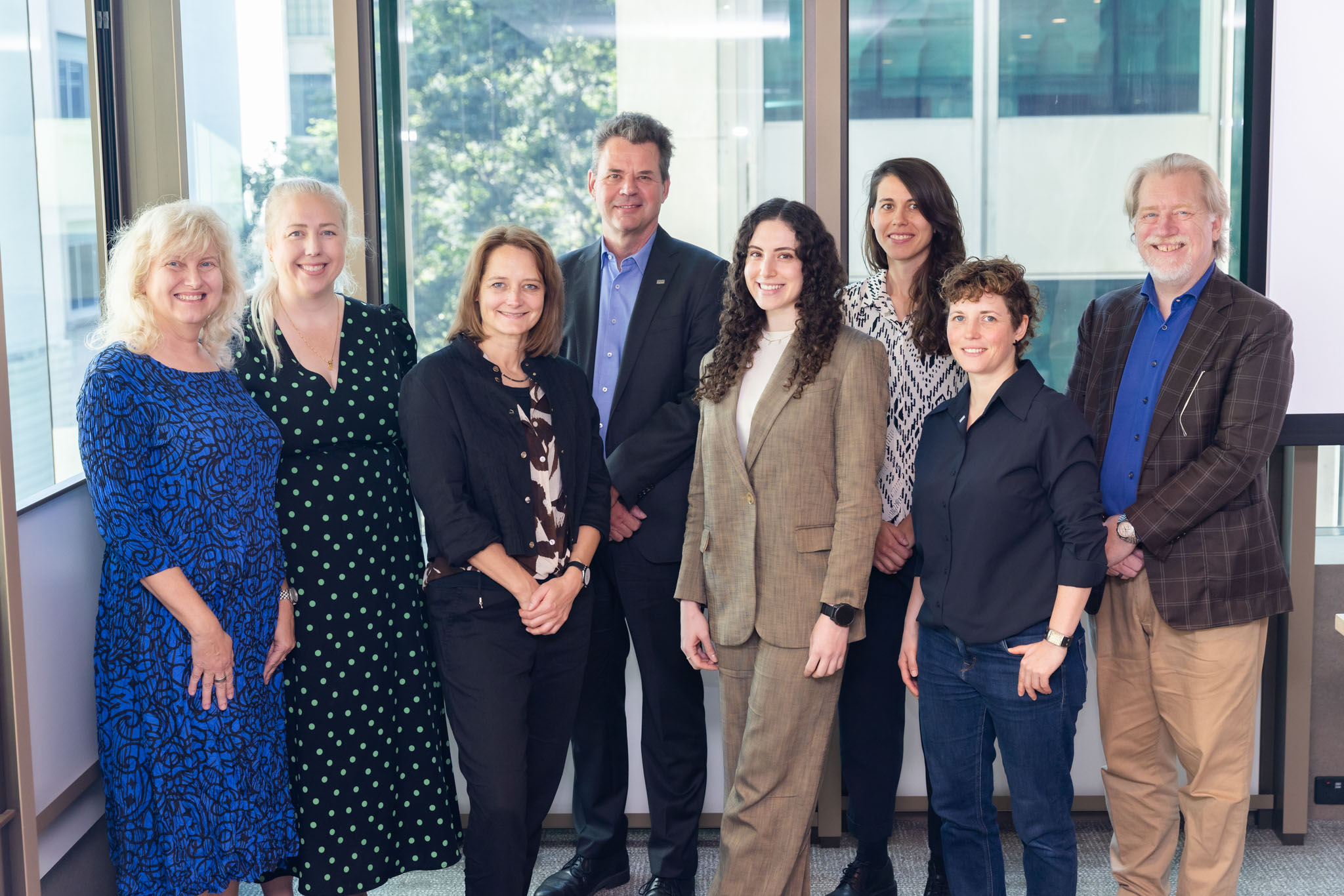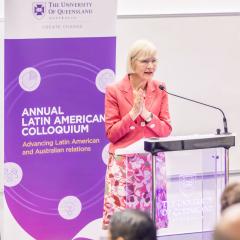The University of Queensland (UQ) and the University of Zurich (UZH) have deepened their strategic partnership through the inaugural UQ-UZH Symposium, held in Brisbane from 7–8 October 2025.


Hosted at UQ Brisbane City, the three-day event brought together research champions, students, and leaders from both universities to explore collaborative solutions to global challenges. The program featured interdisciplinary sessions across several themes including healthy ageing, criminal law, agriculture, big data and AI, and LGBTQIA+ wellbeing – highlighting the breadth and impact of the UQ–UZH alliance.
The Symposium was officially opened by UQ President and Vice-Chancellor Professor Deborah Terry AC and UZH President Professor Michael Schaepman, alongside Mr Tristan Piguet, Science Counsellor at the Embassy of Switzerland in Australia.
Professor Terry said the Symposium marked a significant milestone in the evolving relationship between the two institutions.
“There are clear opportunities to deepen our collaboration in digital health, neuroscience, and innovation. There is scope to expand PhD mobility and postdoctoral programs, and to increase the flow of students between Brisbane and Zurich,” she said.
“Above all, there is the chance to continue building a partnership that combines our strengths to make a difference not just for our universities, but for our communities and for the wider world.”
The Symposium showcased several joint initiatives, including the Swiss National Science Foundation-funded Digital Transformation project, which investigates political participation and the role of technology in democratic processes.
Opportunities for student mobility and academic exchange were highlighted, including the Zurich International Summer School, Swiss Government Excellence Scholarships, and the Think Swiss scholarship program. These initiatives are fostering a globally connected academic community, further supported by both universities’ membership in Universitas 21 (U21).

A new double degree in Law was also announced, building on the success of the UQ-UZH Transnational Organised Crime Program, delivered in partnership with the University of Vienna (Austria), University of Cologne (Germany), and University of Ferrara (Italy).
Dr Tabea Hässler, Senior Research Associate at the UZH Department of Psychology, emphasised the importance of international collaboration in advancing inclusive research.
“Events like the UQ-UZH Symposium and our broader partnership with UQ are instrumental in promoting the health and wellbeing of LGBTQIA+ populations, Dr Hässler said.
“These collaborations enable the exchange of knowledge and inclusive practices across borders, helping us address global challenges around equity and belonging.”
Sessions included presentations on each of the UQ–UZH partnership’s emerging and established themes:
Healthy Ageing: Innovations in lifespan science with Professor Tim Kastelle (UQ), Professor Nancy Pachana (UQ), Professor Mike Martin (UZH), and Ms Gabriela Morgenshtern (UZH).
LGBTQIA+ Health and Wellbeing: A global perspective from Professor Fiona Barlow (UQ), Dr Tabea Hässler (UZH), and Dr Léïla Eisner (UZH).
Global History: Provenance and cultural narratives presented by Mr Michael Aird, Ms Mandana Mapar (UQ), and Professor Martin Dusinberre (UZH).
Big Data and AI: The role of AI in democracy explored by Professor Gianluca Demartini (UQ) and Mr Fynn Bachmann (UZH).
Criminal Law: Tackling transnational organised crime with Professor Susanne Reindl-Krauskopf (University of Vienna/UQ), Professor Gian Ege (UZH), andProfessor Andreas Schloenhardt (UQ).
Agriculture: Advances in gene editing in cereals led by Professor Ian Godwin (UQ).
Paediatrics: Collaborative research in child health featuring Professor Kristen Gibbons (UQ), Professor Luregn Schlapbach, and Mr Niklas Raehse (UZH).
Student Experience: Ms Ella Woods, UQ Bachelor of Laws (Honours) candidate, shared her personal journey through global mobility and joint research.

For more information about the UQ–UZH Symposium or UQ’s international engagement, please contact Global Partnerships.
Photo credit: Jenny Cuerel



